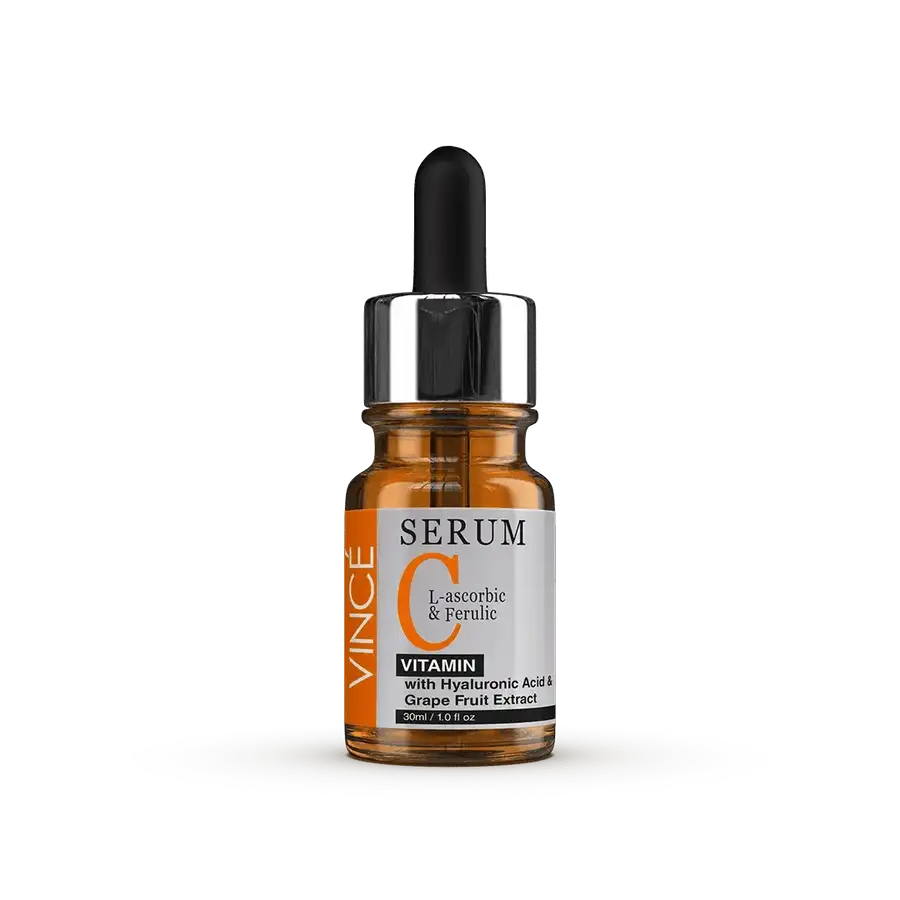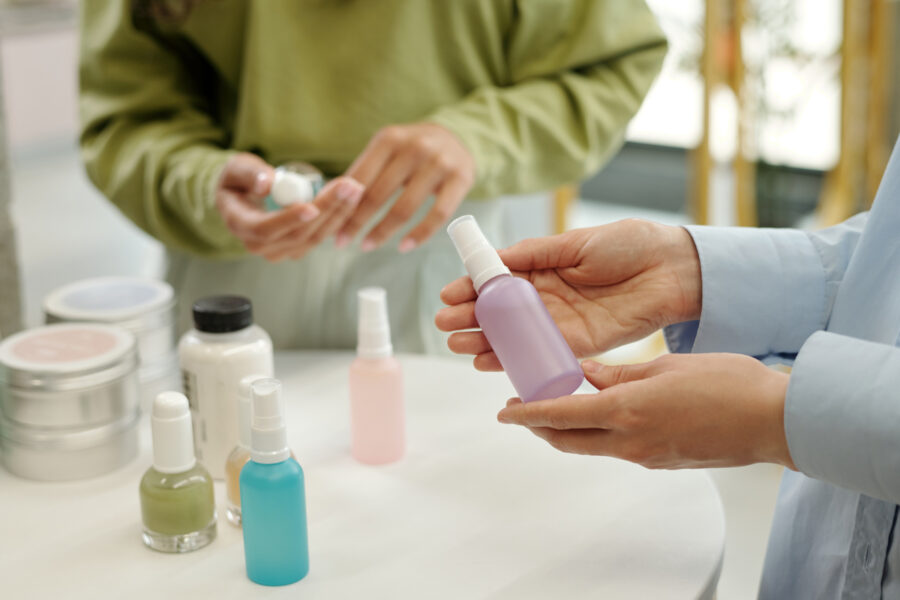Choosing the right face serum is crucial to achieving healthy, glowing skin. With a plethora of serums available in the market, it’s easy to feel overwhelmed. However, understanding your skin type and its specific needs can help you select the best serum for your skincare routine. In this article, we’ll guide you through the process of choosing the right face serum according to your skin type.
Understanding Your Skin Type
Before diving into the details of face serums, it’s essential to identify your skin type. Generally, skin types are categorized into four main groups: oily, dry, combination, and sensitive. Each skin type has its own unique traits and needs specialized care.
- Oily Skin: Oily skin is characterized by excess sebum production, which can lead to a shiny appearance, enlarged pores, and a higher tendency for acne and breakouts.
- Dry Skin: Dry skin lacks moisture and tends to feel tight, rough, and flaky. It often appears dull and is prone to fine lines and wrinkles.
- Combination Skin: Combination skin includes both oily and dry zones. Usually, the T-zone (forehead, nose, and chin) tends to be oily, while the cheeks can be dry or normal.
- Sensitive Skin: Sensitive skin is more reactive and easily irritated by environmental factors, certain skincare products, or changes in weather. It often shows redness, itching, or a burning sensation.
Choosing the Right Serum for Oily Skin
For those with oily skin, the primary goal is to balance sebum production and prevent breakouts without stripping the skin of its natural moisture. Consider serums that include the following ingredients:
- Niacinamide: Also known as Vitamin B3, niacinamide helps regulate oil production, reduces the appearance of pores, and improves skin texture. It also has anti-inflammatory properties, making it ideal for acne-prone skin.
- Salicylic Acid: This beta hydroxy acid (BHA) is oil-soluble, meaning it can penetrate deep into the pores to exfoliate from within. It helps prevent clogged pores, reduces blackheads, and treats acne.
- Hyaluronic Acid: Although often associated with hydration, hyaluronic acid is beneficial for oily skin as it provides lightweight moisture without clogging pores. It helps balance the skin’s hydration levels, preventing the overproduction of oil.
- Tea Tree Oil: Known for its antibacterial and anti-inflammatory properties, tea tree oil can help reduce acne and soothe irritated skin. It’s effective in controlling excess oil production and reducing breakouts.
Choosing the Right Serum for Dry Skin
For dry skin, hydration and moisture retention are key. The right serum should help replenish lost moisture, repair the skin barrier, and prevent further dehydration. Consider serums that include the following ingredients:
- Hyaluronic Acid: A humectant that draws moisture from the environment into the skin, hyaluronic acid can hold up to 1000 times its weight in water. It deeply hydrates the skin, helping to plump it and smooth out the appearance of fine lines.
- Glycerin: Another powerful humectant, glycerin helps attract moisture to the skin and keeps it hydrated. It’s particularly beneficial for dry, flaky skin.
- Ceramides: Ceramides are lipids that help restore the skin barrier, preventing moisture loss. They are essential for maintaining healthy, hydrated skin and are especially beneficial for those with dry or mature skin.
- Squalane: A lightweight, non-comedogenic oil, squalane mimics the skin’s natural oils and helps lock in moisture. It’s highly effective for hydrating dry skin without feeling heavy or greasy.
- Vitamin E: A potent antioxidant, vitamin E helps protect the skin from environmental damage while providing deep hydration. It’s particularly beneficial for dry and aging skin.
Choosing the Right Serum for Combination Skin
Combination skin requires a balanced approach, as it has both oily and dry areas. The goal is to hydrate the dry areas without overloading the oily zones. Consider serums that include the following ingredients:
- Niacinamide: This versatile ingredient works well for combination skin as it helps regulate oil production in the T-zone while providing hydration to dry areas. It also improves skin texture and reduces the appearance of pores.
- Hyaluronic Acid: Suitable for all skin types, hyaluronic acid provides lightweight hydration that won’t clog pores. It helps balance the skin’s moisture levels, making it ideal for combination skin.
- Alpha Hydroxy Acids (AHAs): AHAs like glycolic acid and lactic acid gently exfoliate the skin, promoting cell turnover and improving overall skin texture. They can help manage both dry patches and oily areas by keeping the skin smooth and balanced.
- Green Tea Extract: Known for its antioxidant and anti-inflammatory properties, green tea extract helps soothe the skin, reduce excess oil production, and provide gentle hydration. It’s particularly useful for calming the oily areas of combination skin.
Choosing the Right Serum for Sensitive Skin
Sensitive skin requires gentle, soothing ingredients that won’t cause irritation or inflammation. The right serum should help calm the skin, reduce redness, and strengthen the skin barrier. Consider serums that include the following ingredients:
- Aloe Vera: Known for its soothing and anti-inflammatory properties, aloe vera helps calm irritated skin and provides gentle hydration. It’s ideal for reducing redness and soothing sensitive skin.
- Chamomile Extract: Chamomile has natural anti-inflammatory properties that help soothe and calm sensitive skin.
- Centella Asiatica (Cica): Cica is a popular ingredient in K-beauty products, known for its ability to calm and heal irritated skin. It’s especially helpful for sensitive skin that tends to experience redness and inflammation.
- Calendula: Calendula extract has anti-inflammatory and healing properties, making it an excellent choice for sensitive skin. It works well to minimize redness and soothe irritation.
- Peptides: Peptides help strengthen the skin barrier, making sensitive skin more resilient to external stressors. They also promote collagen production, helping to repair and maintain healthy skin.
The Role of Face Serums in Skincare at the Store
Face serums are lightweight, quickly absorbing liquids packed with a high concentration of active ingredients aimed at addressing specific skin concerns. Unlike moisturizers, which primarily hydrate the skin, serums are formulated to penetrate deeper layers of the skin to deliver powerful ingredients where they are most needed. Serums can address various issues, including fine lines, wrinkles, dark spots, uneven skin tone, acne, and more.
General Tips for Choosing a Face Serum
- Patch Test: Before applying any new serum to your face, perform a patch test on a small area of skin, such as your inner arm, to check for any allergic reactions or irritation.
- Consult a Dermatologist: If you have specific skin concerns or conditions like eczema, rosacea, or acne, it’s advisable to consult a dermatologist before incorporating a new serum into your routine.
- Consider Seasonal Changes: Your skin’s needs may change with the seasons. For example, you might need a more hydrating serum in the winter and a lighter, oil-controlling serum in the summer.
- Read the Ingredients: Always check the ingredients list to avoid any known irritants or allergens. Look for serums that are free from fragrances, alcohol, and other harsh chemicals if you have sensitive skin.
Conclusion
Choosing the right face serum according to your skin type is essential for achieving a healthy, radiant complexion. By understanding your skin’s unique needs and selecting serums with the appropriate ingredients, you can effectively address your skin concerns and enhance your skincare routine. Remember, consistency is key—regular use of a suitable serum will lead to visible improvements in your skin’s texture, tone, and overall health.
Shop Face Serums










Leave a Comment